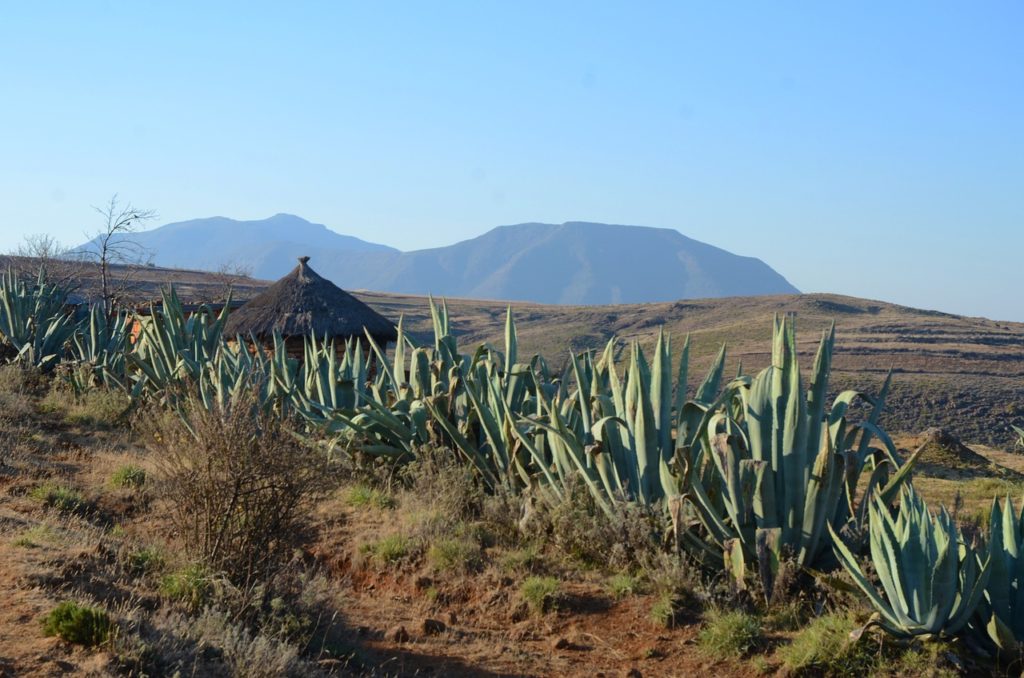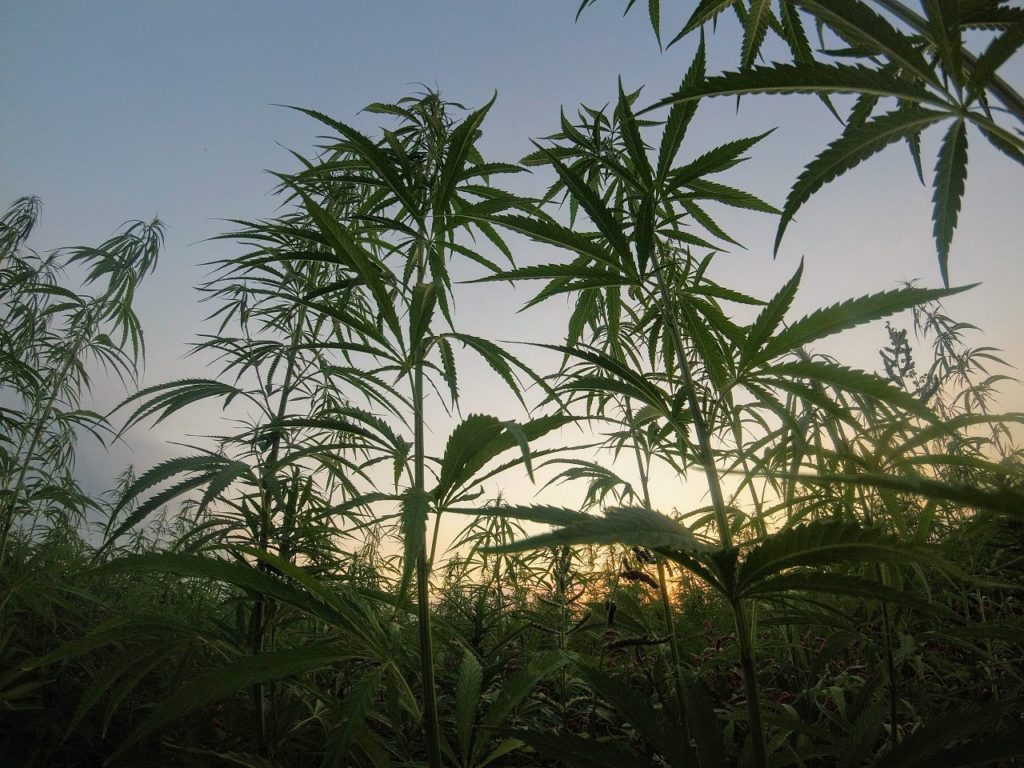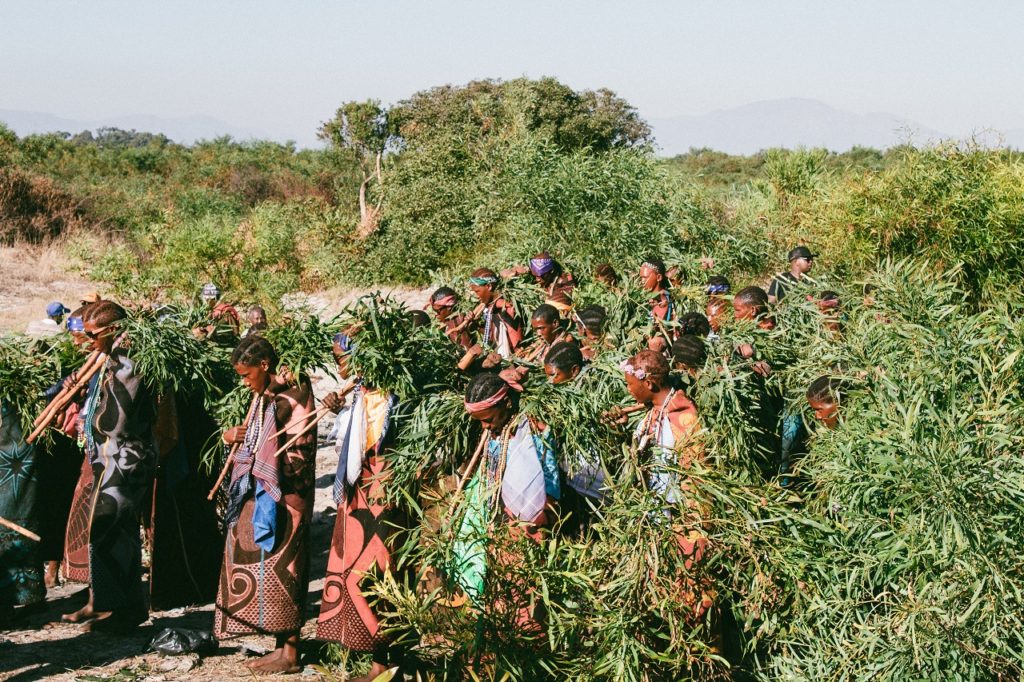The country of Lesotho, with 2.1 million people, decided to follow the booming cannabis industry becoming the first country in Africa to allow the cultivation of cannabis for medical purposes. MG Health, Lesotho’s biggest commercial producer exports non-psychoactive cannabidiol oil extracts and other medical cannabis products primarily to South Africa and is working on entering other markets.
Exporting cannabis in Lesotho could improve its economy


Companies are investing in the legal production of cannabis in Lesotho for medical purposes in order to increase the country’s revenue and respond to the growing global industry.
For more information on cannabis in Africa, check out the Hemp.im app. This app collects the latest cannabis investing news in bite-sized chunks that are easy to digest.
MG Health starts training for the production of cannabis in Lesotho
Kekeletso Lekaota spends her workdays nourishing rows of cannabis plants for harvest. Eighteen months ago, she said she had no experience with this type of crop. That was when she saw a grower’s advertisement in the local newspaper.
She is currently training people from MG Health, a company that supplies cannabis products for medical purposes to grow cannabis in Lesotho on a farm and in an oil extraction unit.
“I didn’t know what cannabis was. It wasn’t until I applied for this job that I realized it was a drug,” she said.
Cannabis in Lesotho is widely grown throughout the country. It has long been used as a remedy by natives. It’s easier to grow and more profitable than other crops such as maize and sugar cane. The country’s abundant water and fertile soil provide the ideal conditions for its production.
Cannabis in Lesotho to provide extra income for poor families
Many families depend on the extra income from cannabis in Lesotho including illegal cannabis sale for recreational use to cover basic costs, such as sending their children to school.
Now, the government of Lesotho is trying to stimulate the development of legal crops to supply the growing global medical cannabis industry and expand the tax revenues, currently dominated by the exports of diamonds, water and wool, and, as a result, create more jobs.
About two-thirds of the country’s 2.2 million inhabitants live in rural villages and many survive on subsistence farming.
Cannabis in Lesotho is a critical part of the government’s agricultural strategy, which hopes to help finance basic infrastructures, such as roads, electricity and water pipes.


Lesotho issues licenses for cannabis cultivation
In 2018, Lesotho became the first African nation to issue licenses for the cultivation of cannabis for medical purposes.
Foreign investors, including Canadian companies Supreme Cannabis, Canopy Growth, and Aphria, invested millions of dollars in some facilities, attracted by the low production costs.
CEO, Andre Bothma, said MG Health is the largest commercial producer of cannabis in Lesotho, which currently employs 350 people and plans to employ up to 3,000 workers in a few years.
The company plants a cannabis variety with low levels of tetrahydrocannabinol (THC) and exports non-psychoactive cannabis oil (CBD) extract and other medical cannabis products, mainly to South Africa, and is working to enter the markets of Europe, Australia, and the Middle East.
CBD is a fast-growing part of the global cannabis market. In the United States, CBD sales are expected to reach $20 billion by 2024, according to BDS Analytics.
Colombia and Jamaica as main competitors to Lesotho
As cannabis rules become more flexible around the world, companies turn to low-cost regions for supply.
Cannabis in Lesotho will soon face competition from other regions including Colombia and Jamaica, as well as other African countries seeking to legalize production.


As a medical product, it is essential that CBD oil is standardized and uncontaminated, with MG Health’s quality control tests being carried out by the independent LuCan laboratory. Workers bathe at work and wear protective clothing, which is washed at the end of each working day.
Kotsoana Clementi, who grows cannabis illegally in her village over an hour’s drive from the capital of Maseru, said she would like to partner with one of the Canadian companies to become a legal business.
“The most important thing would be to guarantee an investor for cannabis in Lesotho. Then the whole village would have jobs,” she said. “I still want to be in charge of the business, but the residents could have a 2-3% stake,” she added.
__
(Featured image by SimonDAllen via Pixabay)
DISCLAIMER: This article was written by a third party contributor and does not reflect the opinion of Hemp.im, its management, staff or its associates. Please review our disclaimer for more information.
This article may include forward-looking statements. These forward-looking statements generally are identified by the words “believe,” “project,” “estimate,” “become,” “plan,” “will,” and similar expressions. These forward-looking statements involve known and unknown risks as well as uncertainties, including those discussed in the following cautionary statements and elsewhere in this article and on this site. Although the Company may believe that its expectations are based on reasonable assumptions, the actual results that the Company may achieve may differ materially from any forward-looking statements, which reflect the opinions of the management of the Company only as of the date hereof. Additionally, please make sure to read these important disclosures.
First published in ZAP, a third-party contributor translated and adapted the article from the original. In case of discrepancy, the original will prevail.
Although we made reasonable efforts to provide accurate translations, some parts may be incorrect. Hemp.im assumes no responsibility for errors, omissions or ambiguities in the translations provided on this website. Any person or entity relying on translated content does so at their own risk. Hemp.im is not responsible for losses caused by such reliance on the accuracy or reliability of translated information. If you wish to report an error or inaccuracy in the translation, we encourage you to contact us.



Comments are closed for this post.